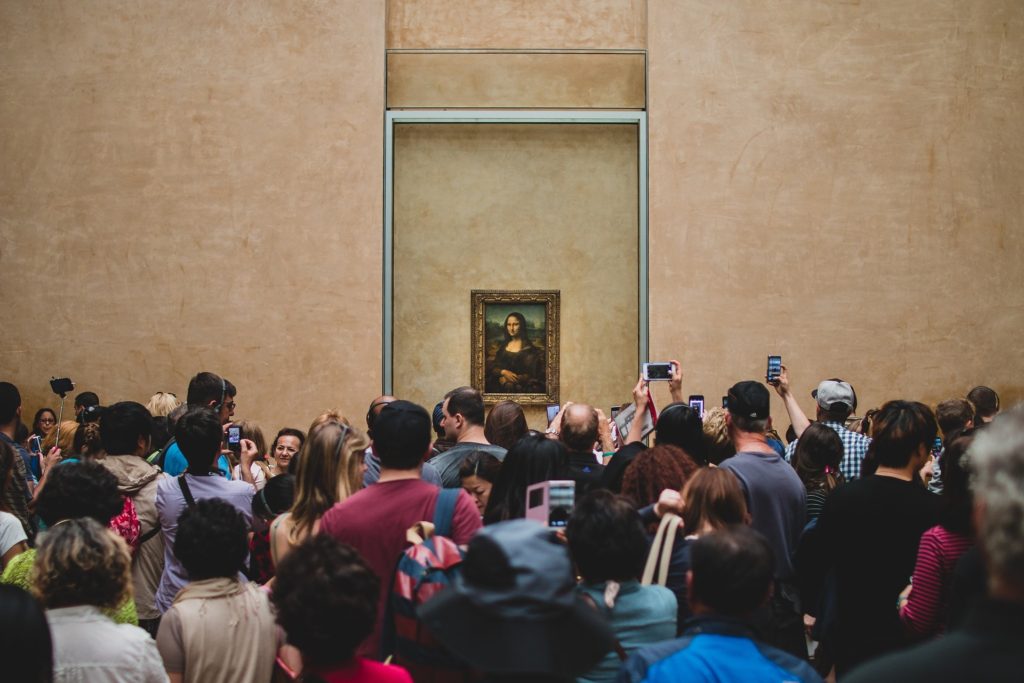November 1, 2021
The Industrialization of the Arts: Meaning in a Capitalist Framework
Today’s post – “The Industrialization of the Arts: Meaning in a Capitalist Framework” – is authored by Igor da Silva Livramento. He’s a fellow academic from UFSC, fellow author, fellow creative-writing advisor, and overall a great fellow. He’s also a composer, music theorist, and producer. Check out his papers on Academia.edu, his music on Bandcamp, and his personal musings on his blog – in Portuguese, Spanish/Castilian, and English. You can also find him on LinkedIn.
The lack of exploration of style, and the absence of style development strikes me as a trait of the industrialization of the arts. The artist no longer has to make poetry, no longer has to open up worlds to be experienced in all their familiarity or strangeness; now the artist must only provoke intense subjective experiences one after another.
It is an impoverishment of art to the level of killing it and reducing it to the same criteria as plain entertainment. I call it the aestheticization of life. The whole life has been made the object of aesthetics.

The Industrialization of the Arts: Life as the Object of Aesthetics
To say that life has become the object of aesthetics means that everything is judged in terms of the intensity of one’s subjective experience of it. Not with a rich and sophisticated understanding of subjectivity, just in a raw and straightforward way: I liked it, or I didn’t like it. The naïve artist who thinks they can break through that, seeks shocking, bizarre, euphoric themes and subjects.
The search for one’s own style is not even a search for originality. It is only a search for a break with the aesthetic criteria of entertainment. It is a way of finding oneself with the primordial source of being and, from that endless flow, as Heraclitus wanted, making something appear.
Uniting Through Difference
Art has a similar place to religion, yet crucially distinct. While religion wants to unite people through sameness, art unites us through difference, through otherness (both our otherness to each other, and art’s otherness to us and the world).
Unlike religion’s promises of eternal life, art deals with perishing and death as the raw material of its efforts. Thus, both work with illusions, but art is aware that they are illusions, and does not promise what it cannot deliver. In other words: Both provide a reservoir of images, but only one of them warns that they are only images.
This difference may seem small, but it is crucial. It is, first and foremost, an ethical difference, because it is a difference of honesty. Honesty is an ethical criterion, which concerns the way we live and coexist. Thus, being in front of a work of art, consuming a work of literature that is art, etc., implies us ethically, even harder than we suppose, I mean, by opening ourselves to radical otherness.
This is construed not only in content terms (for example, a book about geishas in medieval Japan) but also by the radical difference of art in relation to all the other dimensions of life: neither object, nor thing, nor tool, nor philosophy, nor religion, nor science – simply art.
That’s why the best minds of the last century and of this one were and are so concerned about art: Bakhtin, Benjamin, Heidegger, Freud, Derrida, Foucault, Deleuze, Guattari, Lacan, Agamben, Nancy, Lacoue-Labarthe, Rancière, Coccia, Romandini, Badiou, and many others.
Industrialization of Arts As a Process of Entertainment
So far I have only talked about art, but there is a third element in this equation: entertainment. Here, in a modern sense, I mean it as a product of industrial capitalism. Entertainment takes over art through resemblance and occupation: Its products are similar to artistic products and many artists, in order to survive, start producing entertainment in addition to art.
As entertainment is born from the bourgeoisie without culture – the new rich of Europe in the 1700s, those who wanted only to show off that they were rich, without any criteria for the value of things except their commercial potential or their capacity to generate immediate power – it is quickly repurposed: to control the imaginary.
This is why entertainment must deal with everything that concerns the average national subject: from television soap operas about everyday family intrigue to the cosmic superhero who fulfils the power fantasies of those under the rule of politicians and capitalists.
As entertainment also works with images, one has the impression that it is art. But there are also crucial differences, just as there are with religion, although the latter has become increasingly affiliated with entertainment, copying its strategies, spectacularizing itself.
Art allows us to speak. It provides us with parameters with which to measure our worlds. They are only parameters, expansions of consciousness to its own limits. Enrichment of subjectivity.
Entertainment as Speech Control
On the other hand, though entertainment has the appearance of also allowing us to speak, in actual fact this is false. What it really does is silence and control speech. In other words, entertainment does not open our inner world to other worlds that would be exterior to it and of which we come to have some experience; no, art does that.
On the contrary, entertainment is the imagetic form of the religion of capital, a religion strangely without cult, therefore spread everywhere, capable of adhering to everything, like a poisonous miasma. This means that entertainment reduces our worlds to one, crushes them until they flatten into one.
It does not expand our repertoire of images with which we can compose possible worlds and coexistences; it reduces the experiential grammars and lexicons to only its own possibilities, it reduces them to only what has already been said and confirmed.
Capitalism, therefore, makes use of a pernicious weapon, a weapon disguised as a benefit, as kindness, as otherness, as quality. Because it produces and broadcasts images at a hallucinating speed, it becomes increasingly difficult to produce and sustain art.
Neither is the endless adolescent desires in today’s adults surprising: Art is the only social instance that is really honest about death. I say sustain art because art needs sustaining, an interpreting community that circulates it as life, that finds it as an expansion of its subjectivity.

What Can Be Done: From the Industrialization of the Arts to Loving Literature
Antonin Artaud used to say that all true language is incomprehensible. In this way, an understandable language is false. This aporia is not gratuitous.
Throughout literary history, some works have been considered unreadable because they invented new forms and sought a language of their own. What is inventing forms if not proposing new ways of representing? What is the search for a language of our own if not to verbalize differently the experience we have of the world in which we live and the world that lives in us?
I am not speaking here of a merely “formal” question: These (new) symbolizations are the history of literature, its very life, its transformation of itself into itself, its becoming itself. We should know this so as not to give in to intimidation that rejects written invention under the pretexts of difficulty or obscurity.
The Purpose of a Work of Art
The purpose of a work of art is not to produce beautiful objects. Its aim is to represent fairly, that is, in a way that is appropriate to what it represents. Thus, the experience of world, of life, that a literary work discloses can never be clear if it is authentic, because nobody lives in all clarity.
The experience of life is chaos, opacity, an unreasonable mixture of joys and horrors, ups and downs, delights and distresses. If the world is clear, experience simple and life readable, there is no work of art. (And I say work of art, because art works).
So I tell you: It is not love for the world that drives us to literature, but love for literature itself. It is not the demand of any immediate experience of reality that summons us to the practice of literature, but the passion for language.
But what is this language that impassions us in this way?
It is because we speak that the world appears before us as world; it is for that very reason that it is separated from us. No transparent mimesis could account for this. Because to account for it exactly, one would have to account not only for the figures that form this world, but for the unfigurable distance that makes possible their forming.
To put it another way: Literature can only name fairly, properly, if it keeps at the heart of this effort at naming the unnameable that embodies the non-logical difference that the world is for us.
The Literature that Realizes Language
The literature that survives the centuries is a manifestation of this experience: It realizes language. Thus, it is not so much the world that it tells, but what language itself realizes: our excess to the world, the power that the word has to put it at a distance and free us from it. In this, the illegibility is in language not as the foreign worm in the fruit, but as the core essential to its development.
The eventual obscurity of literary writings stems from the fact that literature is total devotion to language, that is, to that force of rupture that excludes us from the world while making us aware of it.
Wanting texts to be readable is our vow to devote ourselves body and soul to the world, and for there to be no more literature. Those who are content with the experience of the world (or with belief) do not write, do not make literature.
Therefore, I pray: sail write away, kids!
I don't show you ads, newsletter pop-ups, or buttons for disgusting social media; everything is offered for free. Wanna help support a human internet?
(If you'd like to see what exactly you're supporting, read my creative manifesto).
